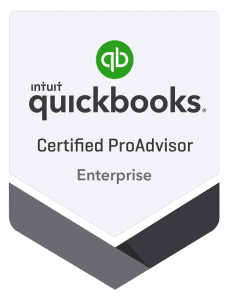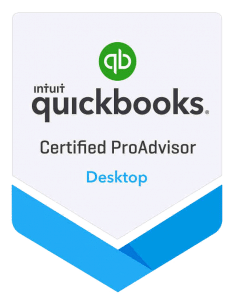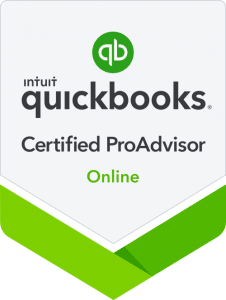Running a business means keeping track of a lot of moving parts. Payroll, expenses, taxes, inventory—the list goes on. One area that often gets overlooked until there’s a problem is financial reporting. But staying on top of your financial reports is one of the smartest things a business owner can do. It gives a clear picture of where the business stands and helps catch small issues before they become costly problems.
Financial reporting isn’t just paperwork for tax season. It’s a tool that helps businesses measure performance, control costs, and plan for growth. Whether you’re trying to figure out how your last quarter went or planning your next big move, solid financial reports give you the info you need to make confident decisions. Without them, you’re pretty much guessing.
What Is Financial Reporting?
Financial reporting refers to the process of tracking and sharing a company’s financial activities over a period of time. These reports are used by business owners, managers, accountants, and even investors to get a better understanding of how the business is doing financially.
Here are some of the core components typically found in financial reporting:
– Balance Sheets: Show what your business owns and owes at a point in time.
– Income Statements (Profit and Loss): Detail your revenue, expenses, and net profit or loss during a specific period.
– Cash Flow Statements: Outline where your cash is coming from and where it’s going.
– Equity Statements: Show changes in owner’s equity over time.
These reports come together to form a full financial picture. When set up properly and reviewed regularly, they can help answer important questions like: Is the business profitable? Are we spending too much? Do we have enough cash on hand? If the answers aren’t clear, reports can also point to areas that need improvement.
One example is a small retail business that noticed its profit margin dipping. By looking closely at its income statement, the owner saw that shipping costs had quietly crept up over the past few months. Because the numbers were clear and easy to follow, the owner was able to negotiate better deals with suppliers and fix the issue before it did any real damage.
Importance Of Accurate Financial Reporting
Accuracy in financial reporting isn’t just a nice-to-have. It’s a must if you want your business to grow in a healthy, sustainable way. Relying on outdated or error-filled reports puts you at risk of making the wrong calls, which can cost time, money, and credibility.
Here’s why accurate reporting matters:
1. Helps with decision making
When your numbers are correct, you can move forward with more confidence. Whether you’re trying to adjust your budget or plan a new hire, good data backs you up.
2. Keeps you prepared for tax time
No one likes tax season surprises. Accurate reports help you track income and expenses throughout the year so your filings are smooth and stress-free.
3. Shows business performance clearly
You’ll see trends that tell you how your business is doing. Maybe your sales pop during certain months. Or maybe expenses are slowly climbing. Good records make those patterns easy to spot.
4. Builds trust with banks or investors
If you’re applying for a loan or bringing on a new partner, solid reports show that your business is responsible and well-managed.
When your reports are clean and current, you’re not just keeping the IRS happy. You’re building a system that supports smarter moves and long-term success. Accurate financial reporting gives you the confidence to steer the business instead of feeling like you’re always catching up.
Consequences Of Poor Financial Reporting
Neglecting precise financial reporting can lead to more trouble than businesses might expect. Imagine handling a company only to discover discrepancies in your numbers. Mistakes in reports can lead to spending more time correcting errors than running the business. This can happen because of minor mistakes like entering amounts incorrectly or overlooking transactions. These small errors can snowball, causing serious damage over time.
Poor financial reporting isn’t just about internal chaos. It can ripple outward, affecting compliance with laws and regulations. Without accurate reports, businesses might face penalties or other legal issues that can quickly escalate. No one wants to be caught in such a predicament due to something preventable.
There’s also the matter of lost opportunities. When your financial health is unclear, it’s hard to make smart investment choices. Businesses might miss chances to expand or collaborate because their financial standing seems shaky. Staying clear of these risks requires dependable financial records that maintain accuracy and completeness.
How To Implement Effective Financial Reporting
Setting up effective financial reporting isn’t an insurmountable task. It simply involves a few smart steps that ensure clarity and precision.
1. Set Up a Reliable System
Use accounting software for accuracy and ease. Plenty of options are available that cater to different business types and sizes. QuickBooks often stands out for its intuitive setup and detailed capabilities.
2. Regularly Update Your Records
Make a habit of logging every transaction. Consistent updating avoids confusion and ensures nothing falls through the cracks.
3. Review Reports Periodically
Weekly or monthly reviews of your financial reports allow for catching discrepancies early on. Make necessary adjustments and keep your data relevant.
4. Invest in Professional Help
Sometimes, the complexity of financial reporting demands expert attention. Enlisting professional help guarantees that nothing gets overlooked and that your numbers remain credible.
5. Audit Regularly
Routine audits offer a comprehensive check on the health of your financial reporting. They can be an invaluable resource in maintaining bulletproof records.
Streamlining Financial Reporting with Cloud Bookkeeping
Partnering with the right professionals can make a big difference in the reliability of your financial reports. Cloud Bookkeeping offers services that help businesses avoid the guesswork. With deep knowledge of QuickBooks and other software tools, our team ensures that financial reports are accurate, easy to follow, and completed on time.
Our team works with clients to identify the reports they need, customize dashboards and reporting formats, conduct regular reviews, and provide insight into what the numbers really mean for the business. Whether you’re a small startup or managing multi-location operations, we’re ready to help you set up systems that make financial reporting easier to manage and trust.
Strong Financials Start With Support You Can Trust
Accurate financial reporting is the backbone of a well-run business. It supports better decisions, helps avoid compliance headaches, and keeps the big picture in focus. With reliable reports, business owners step into each quarter with clarity and control.
When your books are handled with care, your business can face the future with fewer surprises and more confidence. Having a trusted partner like Cloud Bookkeeping puts you on steady ground, giving you support tailored to the way your business runs.
Tightening up your reports today can lead to stronger results tomorrow. Whether you’re hoping to grow, streamline, or simply stay ahead of tax season, financial reporting is the foundation. Let’s make sure it’s built right.
FAQs
Why is financial reporting important for my small business?
It helps you understand what’s working, spot problems early, and stay ready for things like taxes or loan applications. It keeps everything organized and clear.
How often should I review my financial reports?
At least once a month is a good rule of thumb, but weekly check-ins can help you stay even more on top of your finances.
Can I just rely on software for financial reporting?
Software helps, but it’s only part of the equation. Having someone experienced review the numbers helps catch mistakes and gives better insight.
What’s the best software for financial reporting?
QuickBooks is a popular choice for small businesses because it’s flexible and user-friendly. Still, the best tool is the one that matches your needs and is used correctly.
Do I need a professional bookkeeper if I already have accounting software?
Yes. Software is a tool, but a professional bookkeeper makes sure the data going in is accurate and easy to understand when you review it.
Manage your business’s finances by focusing on effective financial reporting. With proper records, you can anticipate challenges, make strategic decisions, and build business resilience. Cloud Bookkeeping is here to support you every step of the way with reliable solutions that strengthen your financial strategies and help you reach your long-term goals.






